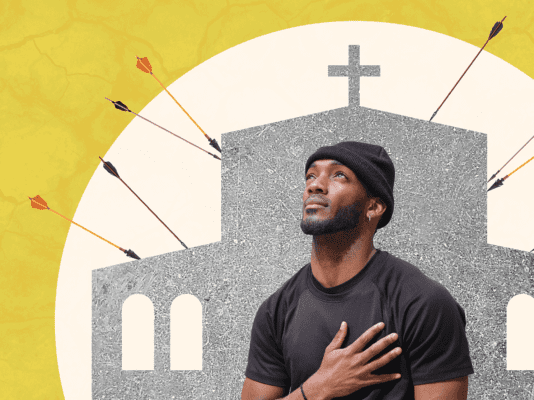As a public health professor, Christ-follower, and substance abuse researcher, my vocation demands that I consistently reflect upon the intersection of faith and efforts that are intended to protect the needs of the population. As the prevalence and incidence rates of a variety of addictive behaviors continue to increase, the stigmatization and misconceptions associated with these behaviors continue to rise as well.
Addiction, whether related to substance abuse or not, can present itself in many forms. An individual may be struggling with prescription drug use, the use of illicit substances, sexual addiction, overeating, or tobacco and alcohol use, just to name a few. The repercussions of engaging in these behaviors often results in devastation for both the user and their loved ones.
What is addiction?
Oftentimes, the general populace may not think of addiction as a disease. While there is a spiritual component, in actuality, it is a disease that is complex and chronic in nature and affects the functioning of both the brain and body. The most common symptoms of addiction are severe loss of control, continued use despite the negative consequences associated with the behavior, a preoccupation with using, failed attempts to quit, increasing tolerance, and withdrawal. There are many evidence-based programs studying best practices in substance abuse prevention and control, but there is still much work that needs to be done.
As the addiction field has matured, it has tried to integrate conflicting theories and approaches to treatment, as well as incorporate relevant evidence-based practices into a single, comprehensive model. Many positive changes have emerged, and a new view of motivation and associated strategies to promote positive behavior change have been developed. This trend in focusing on motivation, coupled with a shift away from labelling individuals as addicts, places an emphasis on examining the determinants and mechanisms of personal change.
Researchers and clinicians have become better equipped to apply and facilitate changes in an individual’s unhealthy or maladaptive behavior. With that being said, as Christians, we must remember that helping those who struggle with addiction is not the sole responsibility of a mental health professional. We must keep in mind that the Christian life is also about bearing burdens well. We are not meant to struggle alone (Gal. 6:2).
The current state of the problem: Incidence and prevalence rates
Currently, there are an estimated 40 million Americans aged 12 and older who engage in substance abuse behavior or are addicted to nicotine, alcohol, or other drugs. That’s more than 1 out of every 7 people. This is more than the number of Americans who suffer from heart conditions (27 million), diabetes (26 million), or cancer (19 million).
According to the National Institute on Drug Abuse (NIDA) and the 2019 Monitoring the Future Survey Results, the use of illicit drugs among 8th, 10th, and 12th graders remained steady at 38%. The use of marijuana has increased in lower grades, when compared to 12th graders, but the prevalence of marijuana use also remains steady. Prescription drug misuse has declined in the adolescent population in recent years, but use among adults continues to be a major public health concern. Alcohol use continues to decline among middle and highschoolers. Lastly, we have made progress in regards to addressing tobacco and nicotine use among adolescents, but the recent popularity in vaping behavior has threatened these efforts.
Addiction, stigmatization, and a call to the Christian
Although the word “stigma” is widely used, there is some variability in how it is defined. Stigma, especially in regards to addictive behaviors, occurs when negative attitudes toward those suffering from substance use disorders arise on account of the disorder itself, and are likely to impact physical, psychological, social, or professional wellbeing. This stigmatization, manifesting as preconceived judgments and misconceptions, often results in the exclusion of those suffering from addiction.
Being present in the lives of those who struggle with addiction provides us with a beautiful opportunity to love people in the midst of their affliction and point them to the One in whom true satisfaction is found.
Stigmatization is an issue we must work through both personally and as a society, but we cannot allow it to be a barrier to gospel ministry. Regardless of how you may perceive the culpability of those who suffer from addiction, Christians should continue to affirm their dignity as image-bearers of God (Gen. 1:26-28). Addicts may be resorting to the things of this world to satisfy, but we know they were made for so much more. We know, and are reassured, that Christ is the only one who will satisfy (Heb. 6:19). Being intentional in caring for this hurting population can provide a God-glorifying opportunity to share the gospel as we strive to minister with love, grace, and compassion.
Caring for those who are suffering from addiction is not an endorsement of sin, gluttony, or the use of illicit substances. When Jesus called us to care “for the least of these” (Matt. 25:40), I believe it includes those who are in destitute and destructive situations. Being present in the lives of those who struggle with addiction provides us with a beautiful opportunity to love people in the midst of their affliction and point them to the One in whom true satisfaction is found. It allows us to help those in sin turn to the freedom that is found in Christ, walking alongside them on a difficult road. As an individual who has had the privilege of working with addictive populations and hearing their stories, I would urge Christians to seek out opportunities to serve this population as a means of living out the Great Commission.









